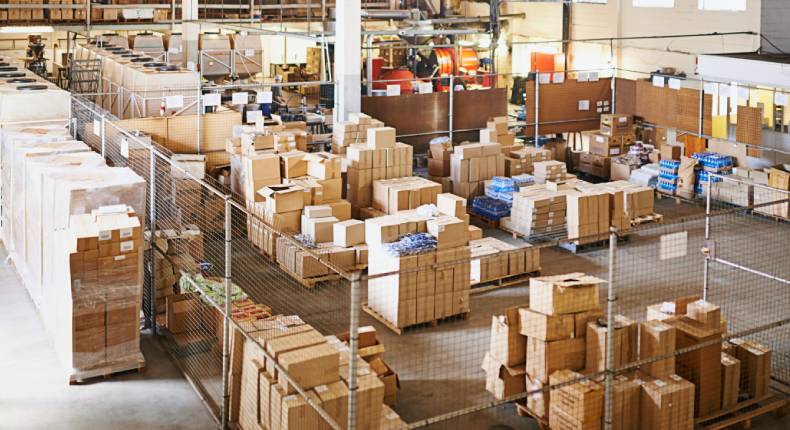The transportation and logistics sector is one of the fundamental pillars for the proper functioning of any economy, and Spain is no exception. In this context, for companies specializing in logistics, Transportation Management Systems (TMS) have become a necessary tool.
What is a Transportation Management System (TMS)?
A Transportation Management System (TMS) is a technological platform designed to help companies plan, execute, and optimize the movement of goods.
This tool efficiently manages all stages of the logistics process. Additionally, TMS systems typically include functionalities such as route management, shipment tracking, inventory management, and integration with other business systems.
Furthermore, TMS systems often integrate with other business systems, such as Enterprise Resource Planning (ERP) systems and warehouse management systems, facilitating a smooth and unified coordination of all logistical and business operations. This combination of tools enables companies to improve operational efficiency, reduce costs, and increase customer satisfaction in the transportation and logistics sector.
What is a TMS used for?
The main objective of a TMS is to improve operational efficiency and reduce the costs associated with the transportation of goods. Through process automation and optimization, a TMS allows companies to:
- Plan more efficient routes.
- Track shipments in real-time.
- Optimize the loading and unloading of goods.
- Improve communication with carriers and customers.
- Reduce transit times and operational costs.
- Comply with transportation regulations and standards.
How is a TMS implemented?
The implementation of a TMS can vary depending on the specific needs of each company, but generally follows these steps:
- Needs assessment: A detailed analysis of the company’s logistical and operational requirements is conducted.
- Selection of the appropriate TMS: The system that best fits the identified needs is chosen, considering factors such as functionality, scalability, and cost.
- Implementation planning: A detailed plan is developed that includes the implementation schedule, necessary resources, and process stages.
- Integration with existing systems: Compatibility and integration of the TMS with other company systems, such as ERP and WMS, are ensured.
- Configuration and customization: The TMS is adapted to the company’s specific processes by configuring parameters and customizing functionalities.
- Staff training: Employees are trained in the use of the new system to ensure effective adoption.
- Launch and monitoring: The TMS is launched and continuously monitored to adjust and optimize its performance.
Why is it important to have a Transportation Management System?
Having a Transportation Management System (TMS) is crucial for companies that want to adapt to a globalized and demanding market. Here are the main benefits of a TMS:
- Operational efficiency: A TMS automates and optimizes logistical processes, reducing errors and improving efficiency, resulting in smoother and faster operations.
- Cost reduction: By optimizing routes and processes, a TMS helps significantly reduce transportation costs. More efficient and shorter routes can be planned, saving time and fuel.
- Visibility and control: It allows real-time tracking of operations, facilitating informed decision-making. This provides a comprehensive view of all logistical activities and enables quick reactions to any unforeseen events.
- Improved customer service: A TMS enhances delivery accuracy and punctuality, leading to higher customer satisfaction. More precise and timely deliveries improve the customer experience, strengthening business relationships.
- Regulatory compliance: It helps ensure compliance with transportation regulations and standards, avoiding fines and penalties. Keeping up with local and international regulations is necessary to avoid legal and financial issues.
- Route optimization: It enables planning of shorter and faster routes, saving time and fuel, and reducing vehicle wear and tear.
- Improved inventory management: It facilitates better inventory management, reducing errors and optimizing the flow of goods. This ensures that products are available when needed and in the correct quantities.
- Scalability: A TMS is scalable and can grow with the company, adapting to new needs and markets. This flexibility allows the system to adjust as business demands change.
These combined benefits make the implementation of a TMS a strategic necessity for any company looking to optimize its logistical operations and remain competitive in the market.
What type of company uses a TMS?
The use of TMS systems is not limited to a specific type of company but is applicable to various industries. Companies that benefit most from a TMS include:
- Distributors and wholesalers: To manage large volumes of products and optimize distribution routes.
- Manufacturing companies: To coordinate the transportation of raw materials and finished products.
- Retailers: To ensure timely and efficient delivery of goods to stores or directly to consumers.
- Logistics operators: To efficiently manage multiple clients and transportation contracts.
- Ecommerce companies: To improve customer experience with fast and accurate deliveries.
In summary, a Transportation Management System (TMS) has become an essential tool for companies seeking to optimize their logistical operations. From route planning and execution to shipment tracking and control, a TMS offers a comprehensive solution that enhances efficiency, reduces costs, and increases customer satisfaction.







